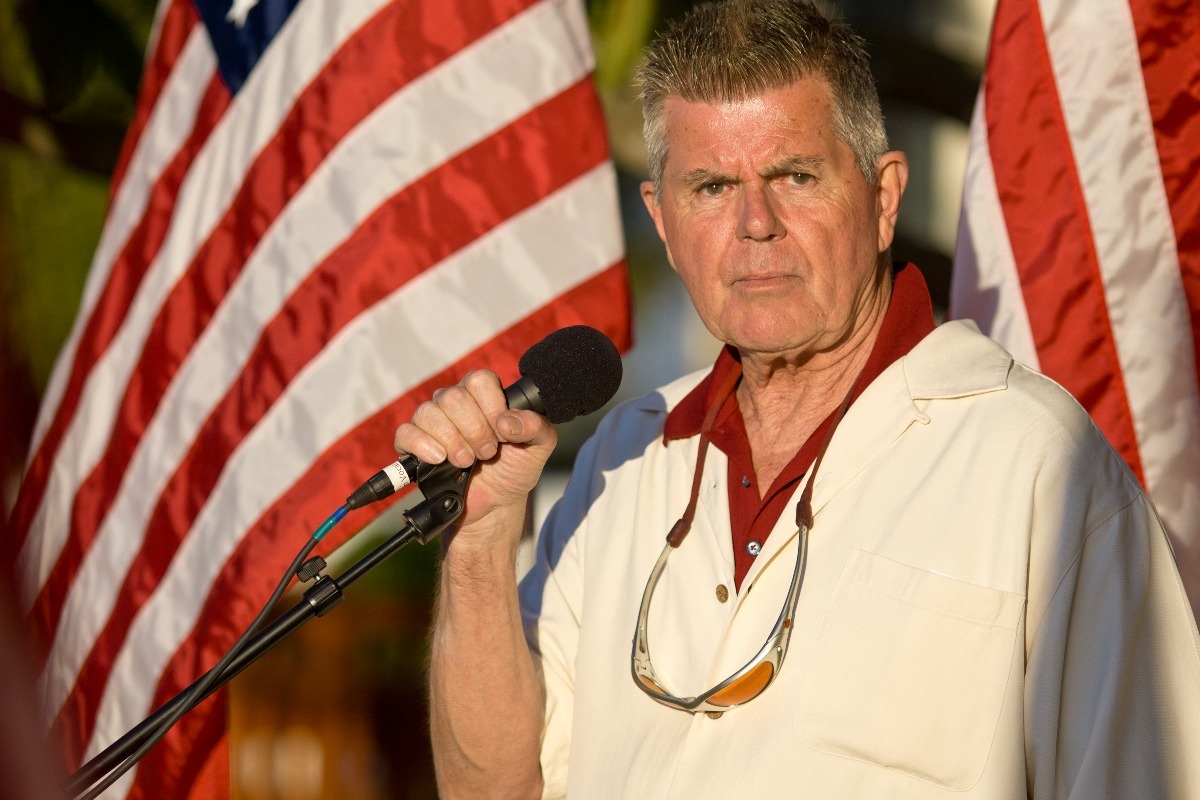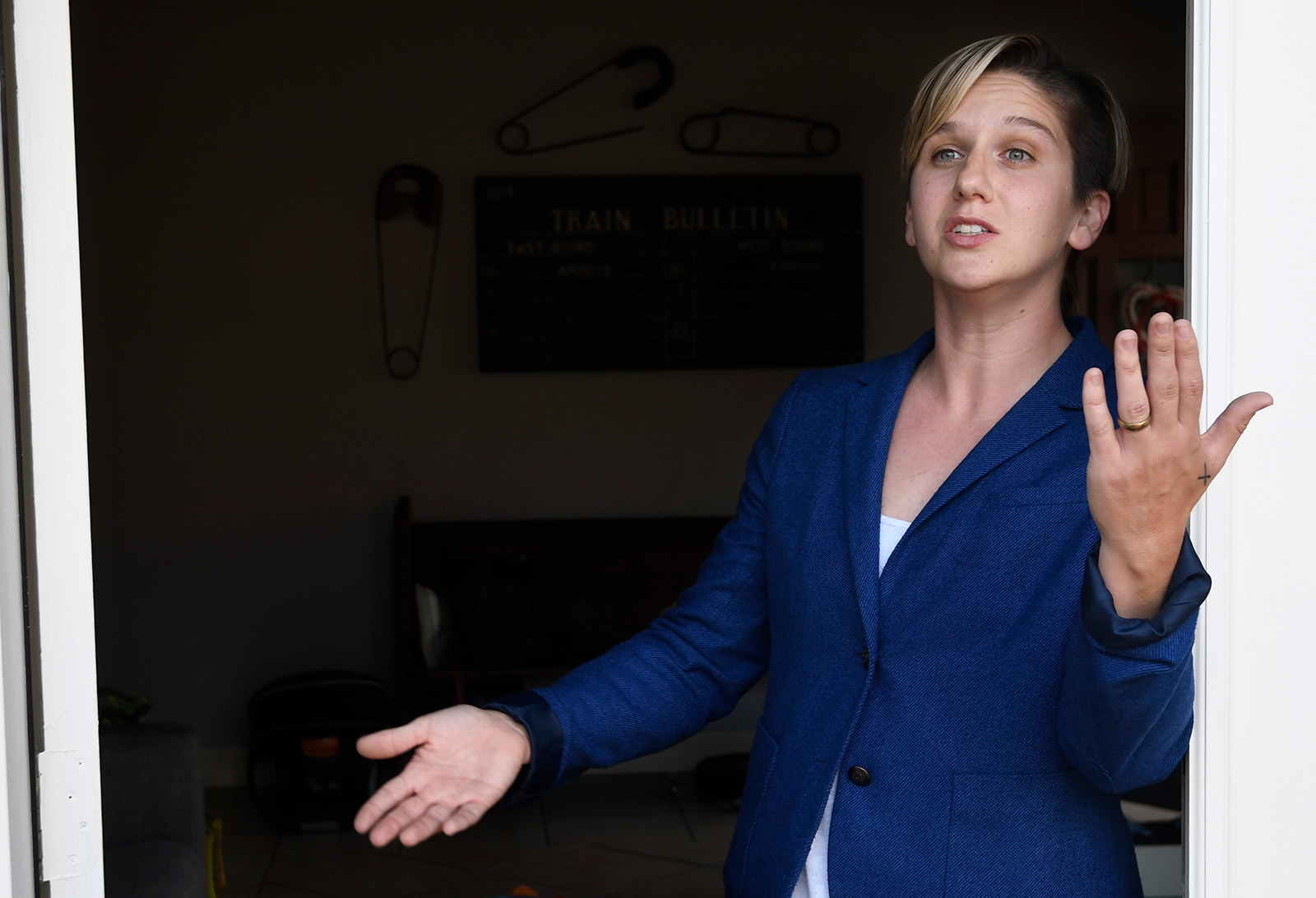SBCC Philosophy Professor Let Go Amid #MeToo Fallout
Mark McIntire Says Controversial Comments Are Protected Free Speech

The teaching career of longtime Santa Barbara City College professor Mark McIntire came to an abrupt end last week in the midst of the campus’s recent #MeToo controversy.
On March 19, the college was alerted to sexual assault allegations against a scheduled guest lecturer, science historian Michael Shermer. The disclosure triggered volleys of legal threats from Shermer, who argued libel and defamation, as well as accusations of harassment against his most vocal defender. Shermer was invited to speak by McIntire, a faculty member in the college’s philosophy department since 1996. In public and private messages, McIntire denounced those who aired the allegations against Shermer as “calumniators” who “secreted” the “venom” of social justice warriors and launched a “Pearl Harbor sneak-attack” against an innocent man.
Though McIntire privately emailed at least four female employees who’d voiced anxiety over Shermer’s appearance, he also singled out chemistry professor Raeanne Napoleon for sending a campus-wide email that cited a news report on Shermer’s alleged assaults. In mid-April, Napoleon filed a Title IX complaint against McIntire that accused him of harassment. Since then, three more faculty members have filed Title IX complaints against McIntire.

City College administration declined to comment on its decision to not rehire McIntire as an adjunct instructor. In public statements, however, McIntire claimed he was told by the philosophy department chair during his teaching evaluation that the topics he chose for his course term papers and exams were too “politically charged,” his Facebook postings were inappropriate, and he failed to grasp “basic philosophical concepts.”
The real reason he was let go, McIntire declared on a new GoFundMe page collecting donations for his legal fund, “is that I was the sole faculty voice expressing the cause of marginalized religious, conservatives, libertarians, homeschoolers, and/or Trump voters on staff, faculty, and student population.” McIntire said that “every word in any and all emails” he sent was protected free speech under the 1st and 14th amendments, and he vowed to press his case through City College’s internal appeals channels and “at every level of the civil judicial system.”
At the school’s May 24 Board of Trustees meeting, McIntire also accused City College of trading a diversity of ideas in its hiring choices for “a diversity of superficialities, people who are members of categories, such as ethnicity, genital configurations, immigration status, incarceration …” Shermer himself implored City College to reinstate McIntire. “Please don’t go down this route,” he asked. “[McIntire] is a good man who cares about facts, truth, and justice, and in a free society and college community that cherishes such values, he should not be punished for that.”
During the same May 24 meeting, history professor Danielle Swiontek discussed the publication of a zine by a student group ― STAND ― that formed in response to the Shermer incident and what is described as the college’s inadequate protection of Napoleon and other female faculty members from his and McIntire’s reported bullying. The zine contains stories of rape, discrimination, and male SBCC staff allegedly soliciting female students. Swiontek called it a “powerful and horrifying” depiction of issues the college has failed to acknowledge.
Patricia Stark, a journalism professor and president of the college’s Academic Senate, told the trustees that Napoleon didn’t act alone when she sent her March 19 all-campus email. Many others shared her concerns. “There was definitely a group of tenured faculty involved in this before the email went out,” Stark explained. “I could have easily been the one who sent the email.”
Napoleon again asked for the college’s legal and financial support to defend her from what she described as the incident’s continuing fallout. “The administration is still distressingly silent in protecting us from ongoing harassment,” she said. “It should not be so hard to get the college to do what is legally and morally right.”



